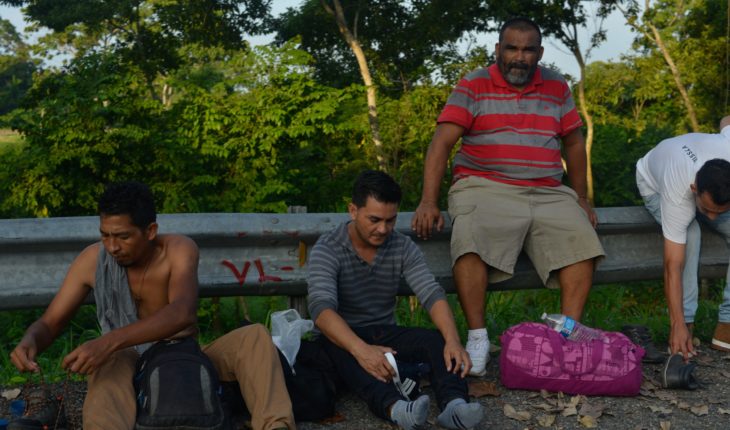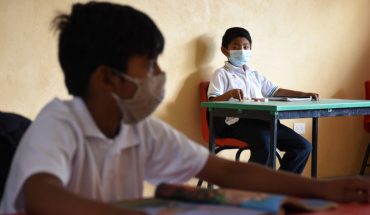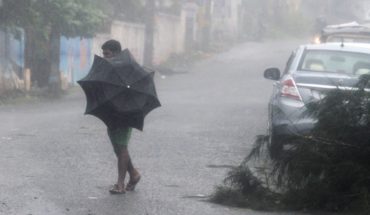The Mexican government must protect migrants and guarantee their human rights, whether they are passing through or while waiting for resolution to their request and not expose them to environments of violence such as those on the run, said Kelly T. Clements, Deputy High Commissioner of the United Nations Refugee Agency (UNHCR).
“Security is the responsibility of national authorities in any country. It is about providing an environment where people can live safely, particularly if they leave another country with serious concerns on this issue. The worst thing would be to seek asylum from another country in a similar situation,” Clements said.
In this regard, the International Organization for Migration (IOM) warns that in the last five years 576 migrants in transit through Central America and Mexico have died, of which 494 occurred in Mexican territory.
Read: Report increased abductions of migrants in Tabasco, although authorities deny it
Mexico has also been harshly criticized for the use of the army for the protection and detention of migrants, which according to the Deputy High Commissioner, is the sovereign right of the state.
“There is a difference in implementation, but each country has the sovereign right to manage its borders and not allow people to cross to make an asylum application,” he said.
In recent months, migrant rights advocates have reported ill-treatment and abuse by Mexican authorities, triggering several deaths.
On July 31, a Honduran man was shot dead in Saltillo, Coahuila, when he was with his eight-year-old daughter after leaving the Migrant House to take the train and continue on his way to the United States.
You may be interested: INM holder apologizes for saying that migrants will be deported so they are from Mars
According to news reports, Coahuila police officers, and possibly federal police officers and the National Migration Institute (INM) were responsible for the 29-year-old Salvadoran’s death.
In early August, a Haitian man died, who had been detained at a migration station in Tapachula, Chiapas for more than 20 days. Despite being unhealthy, he received no medical attention and that the center’s managers took the body without giving any explanation.
Organizations have pointed to degrading and cruel treatment, as well as racism and xenophobia, within the migration stations operated by the National Institute of Migration.
In October, a ship sancwrecked near Chiapas with approximately twenty African migrants fleeing at the possibility of deportation. In that shipwreck, two 39-year-old men of Cameroonian origin were drowned.
However Clements firmly believes that borders can be managed in a more humane way. “It’s about how to manage human flows within a country and shape the system, or whatever the government decides to do, with a human approach. It can be done,” he added.
Find out: National Guard blocks caravan of African migrants in Chiapas
Cooperation of Central American countries
Precisely, the Deputy High Commissioner visited Mexico to meet with several Central American countries that have come together to work together and implement what they call the Regional Comprehensive Framework for Protection and Solutions (MIRPS).
These countries are Belize, Costa Rica, El Salvador, Guatemala, Honduras, Mexico and Panama.
This initiative arose due to a significant increase in the number of refugees and asylum seekers in the region, including internally displaced persons.
“More than in the asylum system, we have focused on how to protect those who have moved, internally and externally. I think there’s been a good appreciation of the region in this. This is a shared responsibility,” he said.
Reads: Shipwreck of African migrants leaves one dead and missing in Tonalá, Chiapas
According to the civil servant, MIRPS is a kind of flagship regional cooperation that is linked to the Global Compact on Refugees, and recognizes that international cooperation is critical to supporting refugees and hosts.
“It looks like a long-term approach. It concerns the government and civil society, international organizations, the private sector, academics and journalists,” he explained.
The UN Commissioner says that since the last time she was here, she has seen Mexico go from being almost exclusively transit to a destination country. This is partly because of the work that has been done to build an asylum system and for the support of the international community.
As an example, he recounted that during his visit, he chatted with several Hondurans and Venezuelans who decided that Mexico was a safe country where they could earn a living and support their families.
What we do in Animal Político requires professional journalists, teamwork, dialogue with readers and something very important: independence. You can help us keep going. Be part of the team.
Subscribe to Animal Politician, receive benefits and support free journalism.#YoSoyAnimal
translated from Spanish: Mexico is responsible for migrant safety: UNHCR
November 15, 2019 |





